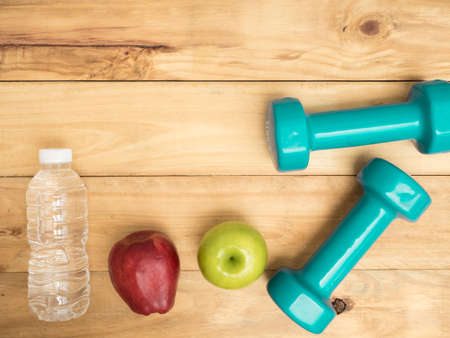Understanding Bone Healing
Bone recovery is something many of us in the UK encounter at some point, whether it’s a simple fracture from slipping on icy pavements or a sports injury from weekend football. The process of bone healing is surprisingly complex and not just about resting up with a cuppa. When a bone breaks, your body immediately kicks into action, forming a blood clot around the break to start the repair job. Over the next few weeks and months, specialised cells build new bone tissue, gradually knitting the fragments back together. It’s a journey that requires patience—and more than just a plaster cast. While rest and appropriate medical care are crucial, nutrition plays an often-overlooked but vital role in this process. The NHS highlights that certain nutrients can support bone regeneration, speed up recovery, and even reduce long-term complications. In the UK, where our diets and lifestyles can vary greatly—from hearty roast dinners to quick meal deals—it’s especially important to pay attention to what we’re eating during recovery. By understanding how nutrition influences each stage of bone healing, you can give yourself the best possible chance for a strong and swift return to normal life.
2. The NHS Perspective on Bone Health
When it comes to bone health and recovery, the NHS plays a pivotal role in shaping both clinical guidance and public attitudes in the UK. Official NHS recommendations are based on robust scientific research and are tailored to the specific needs of British people, taking into account dietary patterns, climate, and lifestyle factors unique to the region.
There is a strong cultural emphasis in the UK on prevention rather than cure, which means that much of the NHS advice focuses on maintaining healthy bones throughout life, not just after injury or during recovery. Public awareness campaigns often highlight the importance of staying active, eating a balanced diet, and ensuring adequate intake of key nutrients such as calcium and vitamin D.
NHS Guidance on Bone Recovery
The NHS recommends a holistic approach to bone health, particularly after fractures or surgery. This includes:
- Adequate nutrition with emphasis on specific vitamins and minerals
- Weight-bearing exercises when appropriate
- Regular check-ups with GPs or physiotherapists
- Smoking cessation and moderation of alcohol intake
Key Nutrients for Bone Recovery: An Overview
| Nutrient | NHS Recommendation | Common UK Sources |
|---|---|---|
| Calcium | 700mg daily for adults | Dairy products, fortified plant milks, leafy greens |
| Vitamin D | 10mcg daily (especially October-April) | Oily fish, eggs, fortified foods, sunlight exposure |
| Protein | Sufficient intake for tissue repair (varies by individual) | Meat, fish, beans, lentils, dairy products |
| Magnesium & Zinc | No specific UK RNI but important for bone metabolism | Nuts, seeds, wholegrains, meat, shellfish |
Cultural Attitudes Towards Bone Health in Britain
Brits are generally conscious of their bone health, especially among older adults. The traditional British diet—often rich in tea and dairy—provides many of the nutrients needed for bone strength. However, awareness is growing about the importance of vitamin D supplementation during months with limited sunlight. The NHS regularly updates its guidelines and works closely with community groups to encourage early intervention and long-term maintenance of bone health.

3. Essential Nutrients for Bone Recovery
When it comes to mending broken bones or supporting overall bone health, the NHS highlights several essential nutrients that play a pivotal role in the healing process. Understanding these key vitamins and minerals can make a significant difference in your recovery journey, especially if you want to get back on your feet with confidence.
Calcium: The Building Block of Bones
Calcium is perhaps the most well-known nutrient for bone health, and for good reason. It forms the structural matrix of bones, making them strong and resilient. The NHS recommends adults aim for around 700mg of calcium daily, which can be sourced from dairy products like milk, cheese, and yoghurt, as well as green leafy vegetables such as broccoli and kale. For those who are lactose intolerant or follow a vegan diet, fortified plant milks and tofu are excellent alternatives commonly found in UK supermarkets.
Vitamin D: Supporting Calcium Absorption
Without sufficient vitamin D, your body struggles to absorb calcium efficiently, no matter how much you consume. In the UK, where sunlight can be scarce—especially during autumn and winter—the NHS suggests considering a daily supplement of 10 micrograms (400 IU) of vitamin D from October to March. Oily fish like salmon and mackerel, eggs, and fortified spreads are good dietary sources, but supplements are often necessary to meet recommended levels during the darker months.
Protein: Repairing and Rebuilding Tissue
Protein is vital for repairing damaged tissues and supporting new bone formation. The NHS recommends incorporating a source of protein into every meal while recovering from a fracture or surgery. Lean meats, poultry, fish, eggs, beans, lentils, and nuts are staple protein sources in British diets. If you’re vegetarian or vegan, plant-based proteins like pulses and soy products can easily be added to soups or salads for a nutritional boost.
Other Important Nutrients
While calcium, vitamin D, and protein take centre stage, other micronutrients also contribute to optimal bone healing. Magnesium helps regulate calcium balance in the body; it’s found in wholegrains, nuts, seeds, and leafy greens. Vitamin K (from green vegetables) supports bone mineralisation. Zinc (found in meat and seeds) aids tissue repair. Together, these nutrients create an environment where bones can heal robustly—a fact supported by both research and NHS clinical guidelines.
A Practical Approach to Nutrition During Recovery
In my own experience navigating bone injury rehab here in the UK, focusing on these nutrients—through both diet and supplements when necessary—helped speed up my recovery time noticeably. Listening to your body’s needs and following NHS guidance provides not only physical benefits but also peace of mind during what can be a challenging period.
4. Best British Sources of Bone-Boosting Nutrients
If you’re looking to strengthen your bones during recovery in the UK, it’s worth focusing on what’s fresh, local, and fits seamlessly into a British diet. The NHS strongly recommends getting key nutrients like calcium, vitamin D, magnesium, and protein from whole foods. Here’s some practical advice on where to find these in-season and locally, as well as how to make them part of your daily meals.
Calcium-Rich Choices
Milk and dairy products are classic British staples for a reason—they’re top-notch sources of calcium. If you prefer plant-based options, look for fortified plant milks (like oat or soya) commonly available in UK supermarkets. Leafy greens such as kale and spring cabbage, especially when in season from late autumn to early spring, are excellent additions too.
Vitamin D: The Sunshine Vitamin
Given the UK’s famously grey weather, relying solely on sunlight isn’t always practical. Oily fish—think Scottish salmon, mackerel, or sardines—are brilliant sources of vitamin D. Eggs and fortified breakfast cereals are also widely available. During winter months (October to March), the NHS suggests considering a daily vitamin D supplement.
Magnesium and Protein Staples
Wholegrains like porridge oats (a breakfast classic), wholemeal bread, and locally-grown pulses such as lentils and peas provide magnesium and protein. British beef, chicken, free-range eggs, and cheese all contribute valuable protein for bone repair.
Quick Reference Table: British Foods for Bone Health
| Nutrient | Best Local Sources | UK Shopping Tips |
|---|---|---|
| Calcium | Semi-skimmed milk, cheddar cheese, kale, fortified plant milk | Check farm shops for fresh dairy; choose seasonal greens at local markets |
| Vitamin D | Scottish salmon, sardines (tinned), eggs, fortified cereals | Look for “oily fish” offers at major supermarkets; check cereal labels for fortification |
| Magnesium | Porridge oats, wholemeal bread, lentils, peas | Select UK-milled flours; buy pulses in bulk for value |
| Protein | British beef, chicken, cheese, eggs | Support local butchers and farm shops when possible |
Making It Work in Your Everyday Diet
Add grilled salmon or tinned sardines on toast to your weekly menu for a vitamin D boost. Swap white bread for wholemeal or granary loaves and try adding an extra portion of leafy veg to Sunday roasts or weekday stir-fries. For snacks, reach for low-fat yogurt or hard-boiled eggs. By making small swaps using what’s readily available across the UK—and keeping an eye out for what’s in season—you’ll be supporting your bones as recommended by NHS guidance.
5. Practical Tips for Incorporating Nutrients into Your Daily Routine
Let’s face it: juggling work, family, and social commitments can make healthy eating feel like another item on an already long to-do list. But when it comes to bone recovery, giving your body the right building blocks is essential—and thankfully, there are ways to slot these nutrients into even the busiest British lifestyle.
Start with a Strong Breakfast
A classic bowl of fortified wholegrain cereal with semi-skimmed milk is a brilliant way to boost both calcium and vitamin D intake before you head out the door. Top it off with sliced bananas or berries for added magnesium and vitamin C.
Smart Snacking on the Go
If your day’s packed with meetings or errands, keep portable snacks handy. A small bag of unsalted mixed nuts (almonds are great for calcium and magnesium), a chunk of cheddar cheese, or even a pot of Greek yoghurt will help keep bones supported between meals. For a vitamin C hit, grab an easy-peel clementine or some cherry tomatoes from the fridge.
Lunchtime Choices That Work
Whether you’re picking up lunch at Pret or making a packed lunch at home, aim for variety. Tuna salad sandwiches (omega-3s and vitamin D), egg mayo wraps (protein and vitamin D), or leftover roast chicken in wholemeal pitta with spinach and peppers (calcium, magnesium, and vitamin C) all tick key nutrient boxes. Adding a handful of rocket or watercress is a simple way to sneak in extra bone-supporting minerals.
Simple Suppers for Recovery
Weeknight dinners don’t have to be complicated. Baked salmon fillets with steamed broccoli and new potatoes cover your bases for omega-3s, vitamin D, calcium, and potassium. Or try an easy veggie stir-fry using tofu or beans for protein and magnesium—just finish with a squeeze of lemon juice to help absorb the iron from greens.
Making It Work for You
No one eats perfectly all the time, so go easy on yourself if some days don’t go according to plan. The NHS suggests aiming for balance across the week rather than perfection every single meal. Batch-cook soups or stews loaded with lentils, leafy greens, and carrots; freeze portions so nourishing options are always within reach.
Your Local Supermarket Allies
British supermarkets stock plenty of fortified foods—from plant-based milks to breakfast cereals—so check labels when shopping. And remember: little swaps add up. Opt for wholemeal bread over white, choose tinned sardines on toast once a week, or sprinkle seeds over salads for an effortless nutrient boost.
With these practical tips rooted in real British routines, fuelling your recovery doesn’t need to be overwhelming—it just needs a few clever tweaks here and there.
6. Common Pitfalls and How to Avoid Them
Bone recovery is a journey that often comes with its own set of challenges, especially here in the UK where certain habits and cultural norms can affect our healing process. Its surprisingly common for Brits to make mistakes during recovery, sometimes without even realising it. Understanding these pitfalls, alongside NHS-backed recommendations, can make all the difference in getting back on your feet stronger and sooner.
Neglecting Dietary Balance
One frequent error is focusing too heavily on a single nutrient—like calcium—while overlooking others such as vitamin D, magnesium, or protein. The NHS stresses the importance of a well-rounded diet. Relying solely on dairy for calcium or taking high-dose supplements without considering your overall intake can lead to imbalances or even hinder bone repair. To avoid this, aim for variety: include leafy greens, oily fish, nuts, and fortified foods regularly in your meals.
Skipping Sunlight and Vitamin D
Given the famously unpredictable British weather, many people don’t get enough sunlight exposure for adequate vitamin D synthesis. This vitamin is crucial for calcium absorption and bone health. The NHS recommends taking a daily supplement during autumn and winter when sunlight is scarce. Don’t underestimate those brief sunny spells—make the most of them by spending time outdoors when you can.
Overlooking Protein Intake
A common misconception is that only athletes or gym-goers need to worry about protein. In reality, protein plays a key role in bone regeneration and muscle strength during recovery. NHS guidance suggests including sources like eggs, beans, fish, or lean meats in your daily diet, helping to support the healing process from within.
Relying Too Much on Supplements
While supplements can be beneficial, they’re not a cure-all. Many Brits are tempted by the convenience of popping pills instead of making dietary changes. However, the NHS advises that nutrients are best absorbed through food whenever possible. Use supplements as a safety net rather than your main strategy unless specifically instructed by your healthcare provider.
Ignoring Professional Advice
Finally, it’s easy to fall into the trap of self-diagnosing or following well-meaning advice from friends and family over professional guidance. Always follow up with your GP or an NHS dietitian if you’re unsure about your nutritional needs or recovery plan. They can tailor advice based on your unique circumstances, ensuring you stay safely on track.
Avoiding these common pitfalls requires a bit of mindfulness and willingness to adapt habits. With NHS-backed guidance and a balanced approach to nutrition, you’ll give yourself the best chance at a speedy and successful bone recovery.
7. When to Seek Professional Help
Recovering from a bone injury can be a long and sometimes uncertain road, even when you are mindful of your nutrition and following NHS recommendations. While most people can support their bone healing with a balanced diet rich in calcium, vitamin D, protein, and other key nutrients, there are times when self-care is not enough. Knowing when to reach out for professional help can make all the difference in your recovery journey.
Recognising the Signs
If you notice that your pain or swelling is getting worse rather than better, or if you experience unusual symptoms such as persistent fatigue, digestive issues after taking supplements, or difficulty eating well due to appetite changes, it’s important not to ignore these signals. Sometimes, these can be signs that your body isn’t absorbing nutrients effectively, or that complications may have arisen.
NHS Support and Specialised Nutritional Advice
The NHS provides excellent resources for those recovering from bone injuries. If you’re struggling to meet your nutritional needs—perhaps due to dietary restrictions, underlying health conditions like coeliac disease, or simply because you feel overwhelmed by conflicting information—it’s wise to ask your GP for a referral to a registered dietitian. They can offer tailored advice based on your medical history and current needs.
When Should You Act?
Don’t wait if you’re experiencing any of the following: unintentional weight loss, ongoing nausea or vomiting after injury or surgery, inability to tolerate foods high in key nutrients (like dairy for calcium), or if you’ve been told you have low vitamin D or calcium levels despite supplementation. Early intervention from professionals can help prevent further complications and get your recovery back on track.
Ultimately, listening to your body and being proactive about seeking NHS support ensures that you’re giving yourself the best chance at a strong and steady recovery. Whether it’s through an appointment with your GP, accessing local fracture clinics, or consulting with a specialist dietitian, don’t hesitate to ask for help when things don’t feel right.


